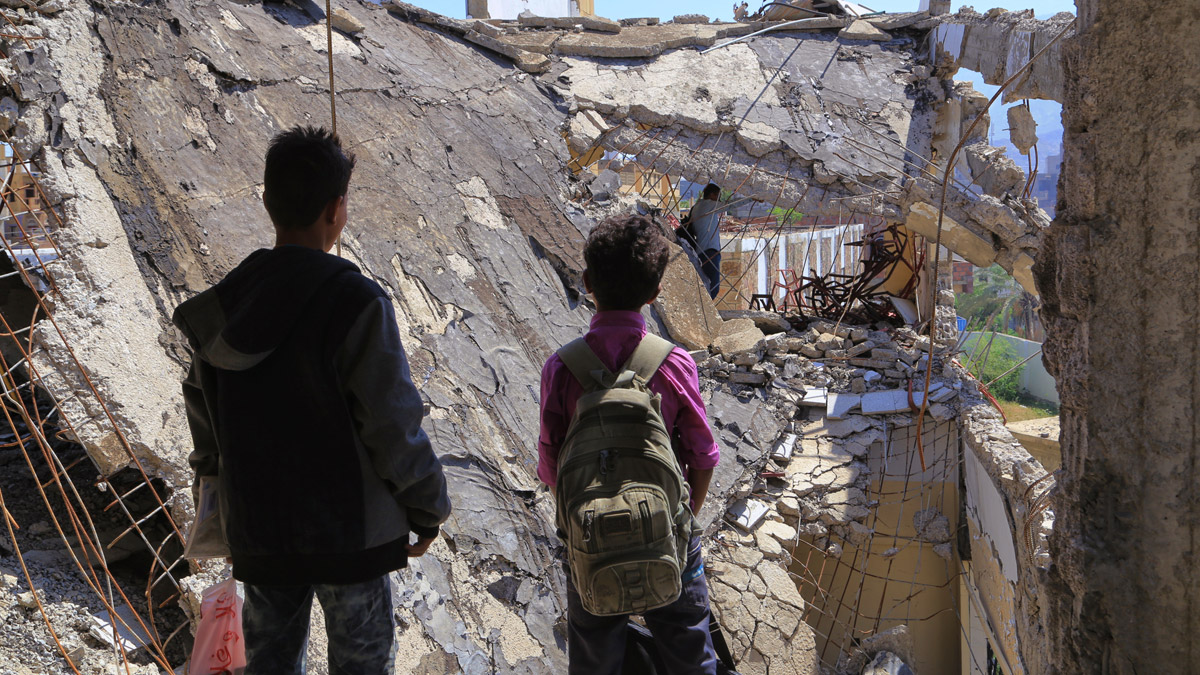Know Your Rights: Taking Action

Photo: Shutterstock, Anas Alhajj
Muhammad Najeem
Muhammad Najeem was fifteen years old in 2017 when he began to document the armed conflict in Syria. His father had been killed in an air strike on the mosque where he was praying. Muhammad witnessed extreme violence and suffering during the Syrian regime’s siege of his village in Eastern Ghouta. He became determined to tell the world what was happening. Speaking in English to a Western audience, he used social media to conduct interviews and document the day-to-day reality of life and death in a war zone. Whenever the bombing stopped, he and his older brother hurried to the rooftop and used a 32.8-foot (10 meter) Wi-fi pole with a USB stick to upload the footage. Soon Muhammad and his family were forced to flee. Eventually they were given asylum in Turkey, where he continues to report on ongoing war crimes and human rights abuses in his home country through contacts still in Syria.
In 2002, in West Bengal, India, Babar Ali started teaching when he was nine years old. When he returned home from school each day, he shared what he had learned with local children who couldn’t go to school and had to work instead. His backyard became the school. There was no roof or seating area, so when it rained, classes had to be canceled, but the children were not put off. What started as a game became very serious. Babar’s parents supported the right to education, but the other parents were distrustful – especially if their child was a girl. Even so, by 2015, Babar’s backyard school had grown so much it had to move. It was also recognized by the West Bengal School Education Department. It now has more staff, and by 2020 it had taught about 5,000 children (60% of them boys and 40% girls) from poor families without charge.
“I’d see girls and boys of my age coming home from work instead of coming home from school. I would make them sit in the backyard of our home and teach them. I was the headmaster. I did not give up. I fought tooth and nail and when I founded this school, parents were very skeptical about educating their children. They were not educated themselves so they did not realize the value of education. We went door to door to send their kids to school. Now my students are starting in college. Some of them are now teaching at my school.”
Reprinted with permission:Know Your Rights and Claim Them: A Guide for Youth
by Amnesty International, Angelina Jolie, Geraldine Van Bueren. Text copyright © 2021 by Amnesty International. Reprinted with the permission of Zest Books, a division of Lerner Publishing Group, Inc. All rights reserved. No part of this text excerpt may be used or reproduced in any manner whatsoever without the prior written permission of Lerner Publishing Group, Inc.